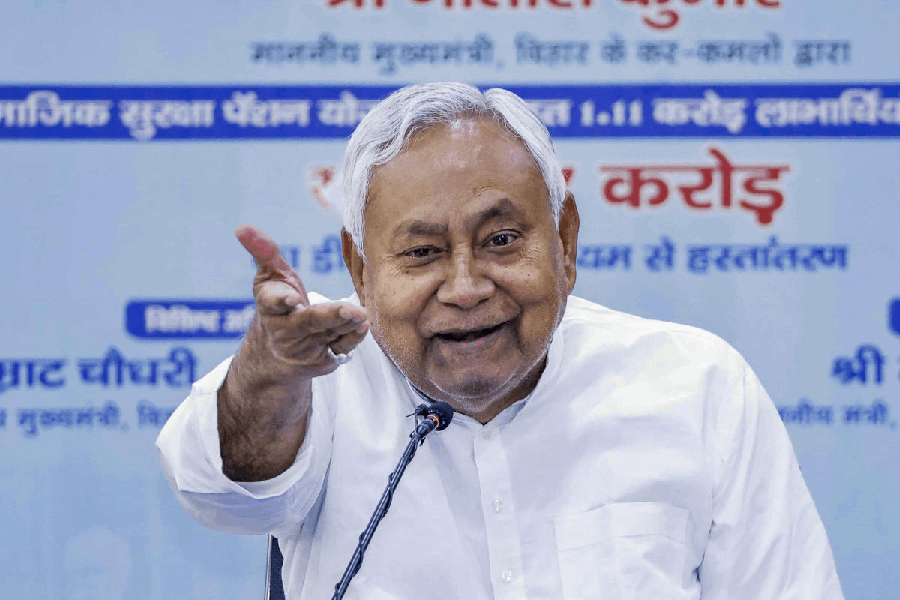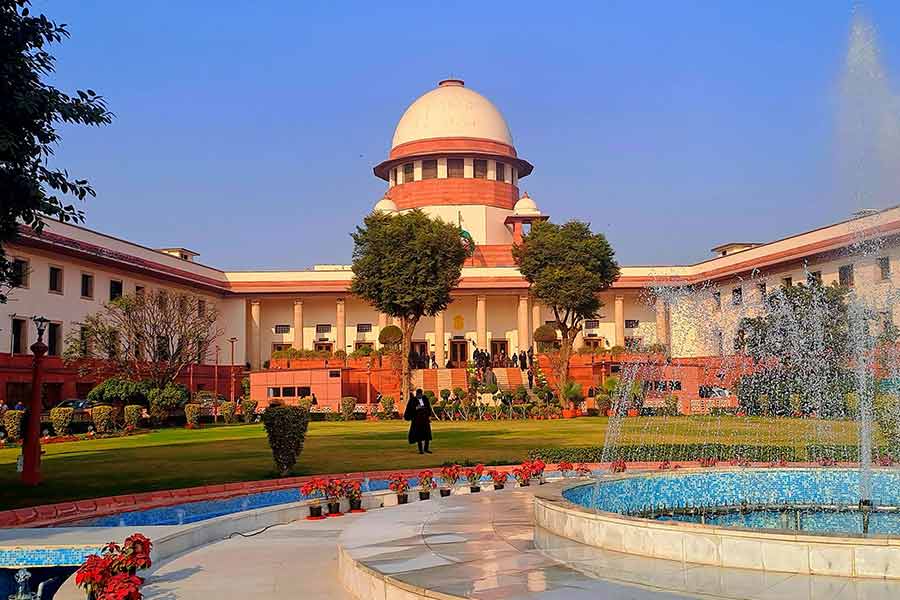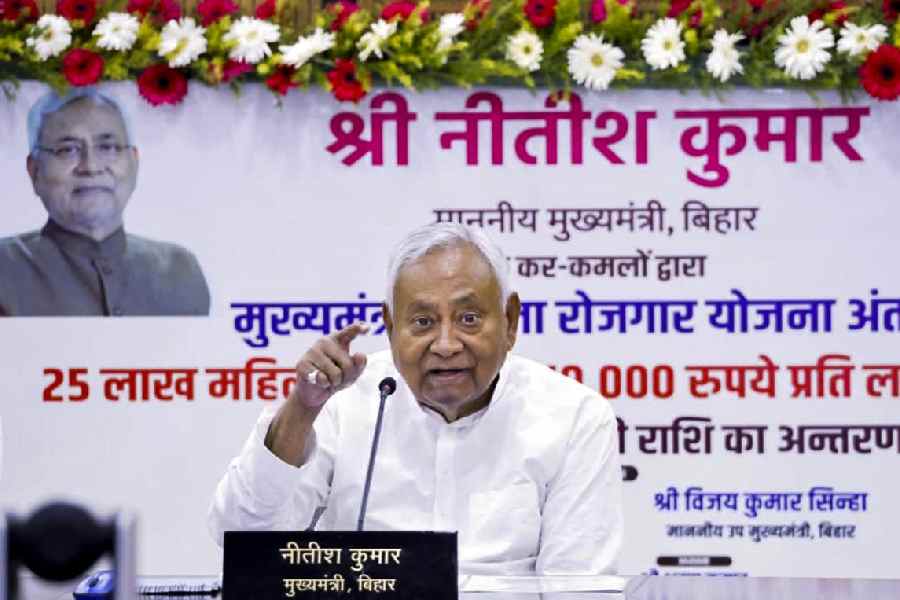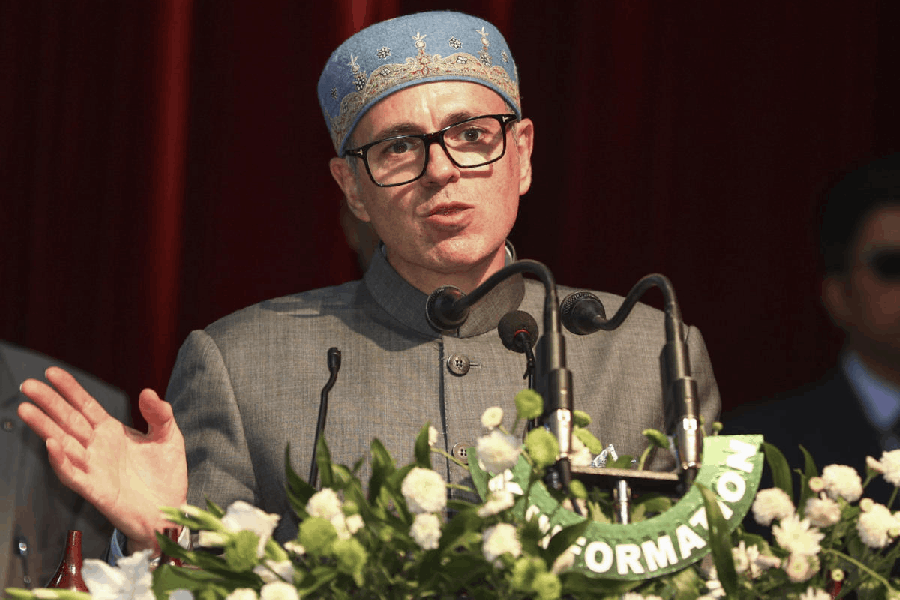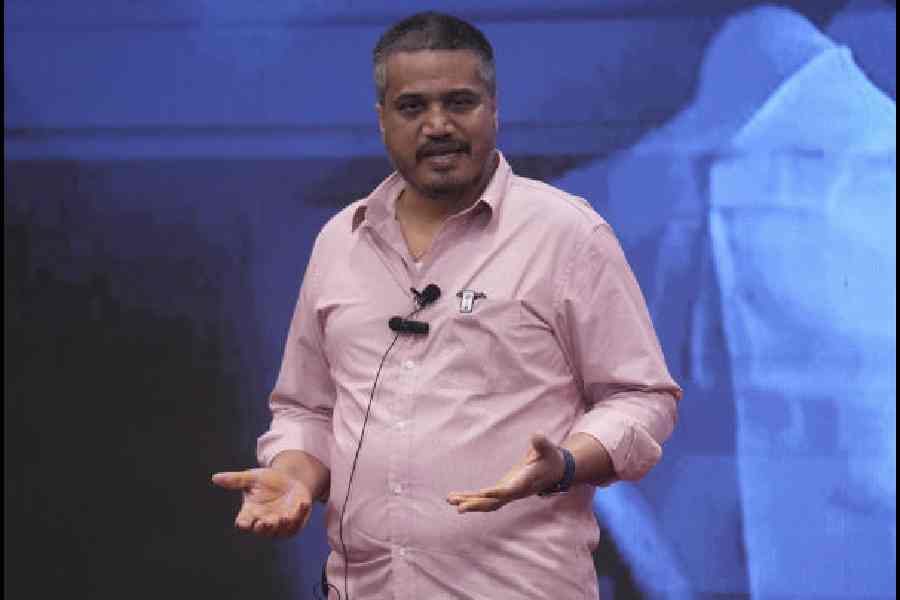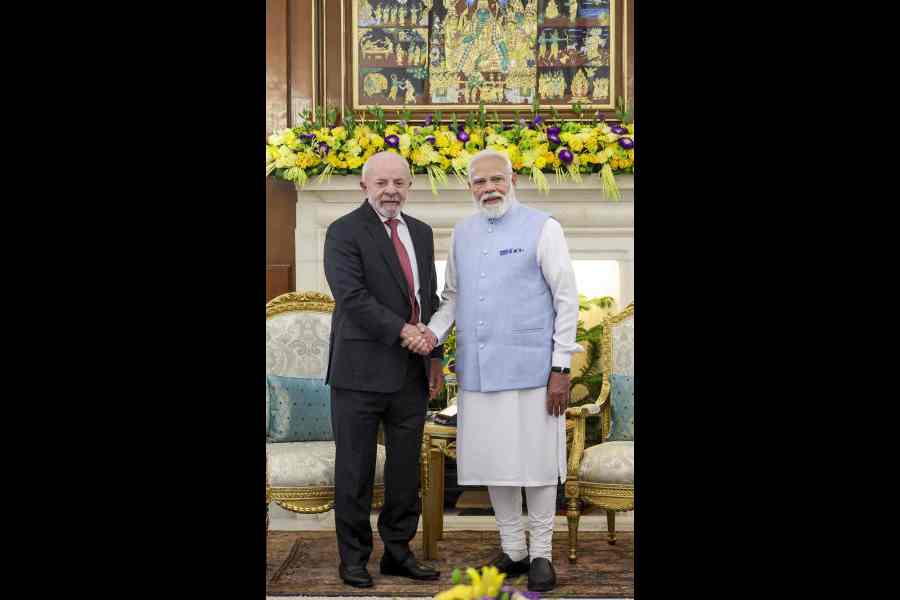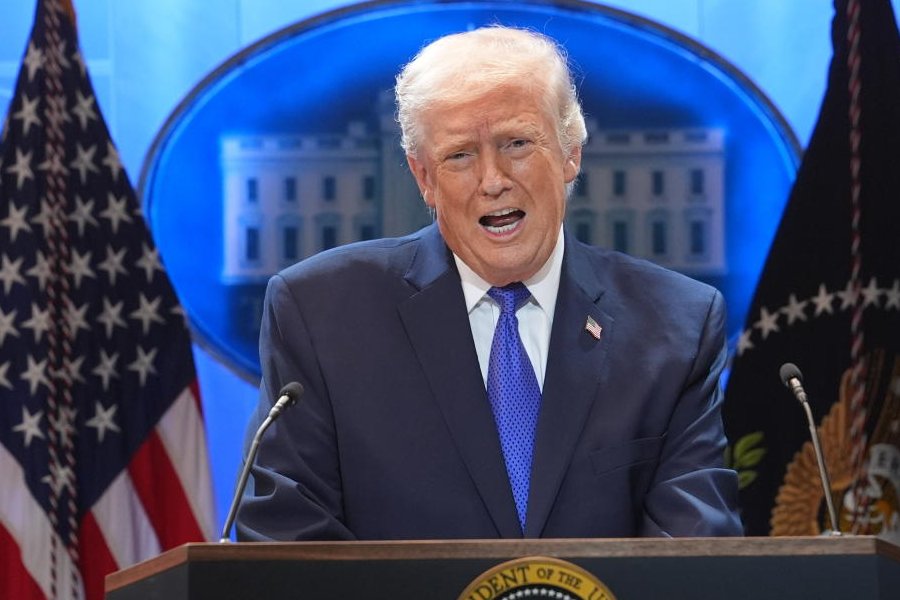Bihar chief minister Nitish Kumar’s Janata Dal United on Thursday announced its second list of candidates for the upcoming 2025 Bihar Assembly elections, releasing names of 44 contenders.
With this, the party has declared candidates for all 101 constituencies it will contest under the National Democratic Alliance (NDA) seat-sharing arrangement.
The Bharatiya Janata Party (BJP), is also contesting from 101 seats. The BJP has announced the name of all its candidates.
The latest JDU list includes ministers such as Sheila Mandal, Vijendra Prasad Yadav, Leshi Singh, Jayant Raj, and Mohd Zama Khan.
JDU has fielded four Muslim candidates — Mohd. Zama Khan from Chainpur, Saba Zafar from Amour, Janab Manzar Alam from Jokihat, and Shagufta Azim from Araria.
Except Chainpur, the remaining constituencies lie in the Seemanchal region, a politically sensitive area with a significant share of Bihar’s 17 per cent Muslim population.
The number of Muslim candidates is less than half of the ten the party had fielded in the 2020 elections.
While JDU has maintained limited Muslim representation, the BJP has not fielded any Muslim candidate this election.
The party said its candidate selection reflects a balance of caste and community representation.
Of the 101 candidates, 37 are from backward classes, 22 each from the extremely backward classes and the general category, 15 from scheduled castes, and one from a scheduled tribe.
Thirteen women have been given tickets, along with five ministers and three candidates regarded as strong local figures.
Other NDA allies such as Hindustani Awam Morcha (HAM), Rashtriya Lok Morcha (RLM), and Lok Janshakti Party (Ram Vilas) have also announced most of their nominees under the alliance’s seat-sharing plan.
The Congress on Wednesday released its first list of 12 candidates even as talks over a seat-sharing deal with Mahagathbandhan partners remain unsolved.
The Bihar Assembly elections are set to be a crucial regional test for Prime Minister Narendra Modi’s NDA, which faces challenges from youth unemployment and public distrust over voter rolls.
Bihar, one of India’s poorest and third most populous states with over 130 million people, is politically significant for the national coalition.
Nitish Kumar, who has alternated alliances between Modi and the opposition in the past, remains a key NDA partner in this election.
Any cracks within the NDA could affect the stability of Modi’s national coalition, which currently holds 293 out of 543 seats in Parliament.
According to an October 8 opinion poll by Vote Vibe agency, the NDA holds a narrow 1.6 percentage point lead over the opposition alliance led by the Rashtriya Janata Dal (RJD) and the Congress.
The agency said the alliance’s edge is attributed to recent government programmes such as direct money transfers to 12.1 million women under a self-employment subsidy scheme worth over Rs 12100 crore.
Social activist Nivedita Jha from Patna said women will play a decisive role in this election.
“Women take the decisions because the men are not here,” she said, referring to the large-scale migration of male workers from Bihar to cities like Mumbai and New Delhi. “They talk about the opposition which has promised more money if they come to power, and my understanding is that they trust the opposition more.”
Concerns over the revision of voter lists have also stirred discontent. Eighty-five-year-old Jitni Devi from Bihar said she was removed from the list and now cannot vote or access her pension. “They have declared me dead,” she said. “People in my village tease me as a dead woman, and bank officials shoo me away when I go there to withdraw my money.”
The state election commission has not responded to queries about her case, though the federal body has said all complaints are being investigated.
Employment remains another critical issue. Despite a drop in the unemployment rate, anxiety among Bihar’s youth continues.
Government data shows that 9.9 per cent of people aged 15–29 were unemployed in 2023–24, down from 30.9 per cent in 2018–19.
“For me, I have seen my father going out of Bihar for work, so the issue of jobs matters the most,” said 25-year-old first-time voter Babloo Kumar.
Adding to the political mix, Prashant Kishor’s newly founded Jan Suraaj Party has positioned itself as an alternative force.
Party president Uday Singh said, “Joblessness, migration, increasing debts, loss in agriculture revenue are the issues in Bihar. There is a big dip in Modi’s popularity here.”
However, the party faced internal strife after seventeen members in Kaimur district resigned on Thursday, alleging caste discrimination.
District vice president Kripa Shankar Rajbhar accused Kishor of favoritism in ticket allocation, claiming that newcomer Hemant Chaubey’s nomination was decided through bias.
Deputy chief minister Samrat Chaudhary expressed confidence in the NDA’s prospects, saying, “The people of Tarapur have supported me and NDA a lot. I just want to tell them that I will complete all the work that is yet to be done in the state. For the development of Bihar, we have to vote for NDA.”
BJP leaders also struck a confident tone. MP Anurag Thakur said, “The momentum NDA has gained in Bihar elections is clearly visible. On the other hand, there is conflict within the Mahagathbandhan. Slogans are also being raised against Lalu Prasad Yadav. Look at the NDA candidates; many young candidates have been given a chance so that NDA government can be formed for the youth of Bihar. The people of Bihar want to connect with development.”
BJP MP Manoj Tiwari said, “Everyone in the NDA is engaged in selecting their party’s candidates. We assure you that this time every candidate of the NDA will win with a big margin and Bihar is ready for a new flight. Bihar will again have an NDA government and it will be very strong. Prosperity has reached the homes of youth, women, and the poor, bringing smiles to everyone.”
He also described RLM chief and Rajya Sabha MP Upendra Kushwaha as “a very important leader of the NDA” with “great experience,” adding that opposition leaders Tejashwi Yadav and Rahul Gandhi “will fight among themselves” and “don’t care about Bihar.”
Bihar will go to polls in two phases, with voting scheduled for November 6 and 11. Counting and results will be declared on November 14.
With inputs from agencies

